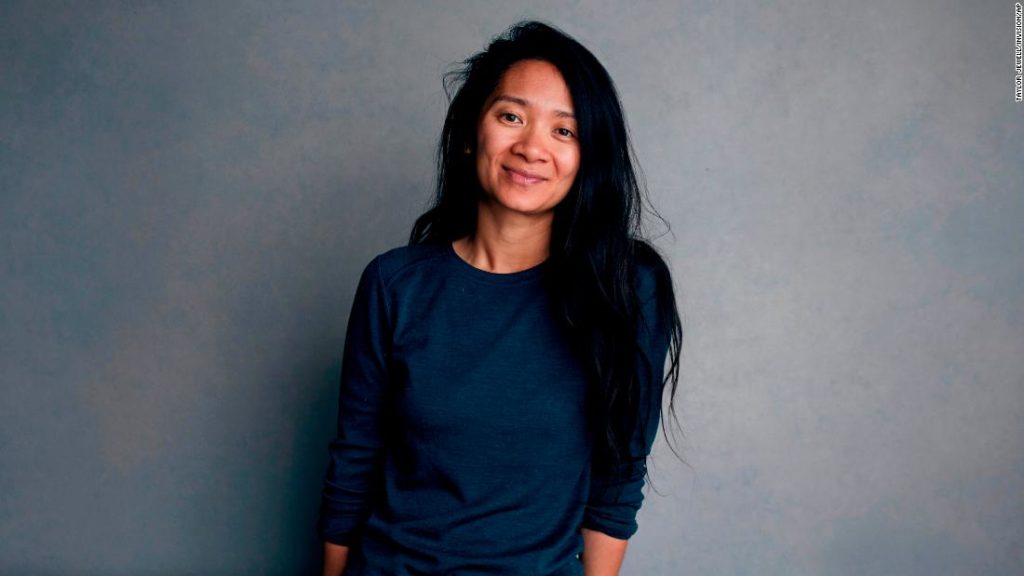Nancy Wang Yuen is a sociologist at Biola University and the author of “Reel Inequality: Hollywood Actors and Racism.” All opinions expressed in this article belong to the author.
It took 93 years for the Academy to name an Asian woman as Best Director. And until this year, only five women, all White, had ever been nominated and only one had won — Kathryn Bigelow, in 2010, for “The Hurt Locker.”
But all of this changed Sunday evening, with Chloé Zhao taking home the Academy Award for the critically-acclaimed “Nomadland,” which depicts a woman in her 60s (played by Frances McDormand) traveling through the American West as a van-dwelling nomad. (In an Oscars first, another woman director, Emerald Fennell, was also nominated in the category in the same year).
The Chinese director’s win acknowledges the impact Asian women can exert on the entertainment industry — one that has historically objectified them.
More agency
Particularly egregious examples of this include scenes in Stanley Kubrick’s 1987 movie “Full Metal Jacket,” in which a Vietnamese prostitute approaches two White American GIs, saying, “Me so horny … me love you long time.” Another disturbing portrayal takes place at a massage parlor in 2001’s “Rush Hour 2,” where a harem of Asian women sex workers appear from behind a set of sliding doors but are given no personalities and no backstories. Instead, they entice Chris Tucker’s character, with one woman seductively cupping her breasts while others smile submissively.

A still from “Full Metal Jacket” (1987). Credit: Mary Evans/Ronald Grant/Everett Collection
But as the stature of Asian women slowly grows behind the scenes, so does the richness of Asian female characters on screen.
Following on from this success, director Lulu Wang’s 2019 film, “The Farewell,” depicted a Chinese American woman (played by Awkwafina, who also starred in “Crazy Rich Asians”) navigating her family’s decision to keep a cancer diagnosis hidden from her beloved grandmother in China. Partly based on Wang’s own life, this was a family drama in which all the Asian and Asian American women were complex, humanized characters. There was no objectification, simplification or fetishization in sight.

Awkwafina (center) in “The Farewell” (2019). Credit: A24 Films
In 2020, director Cathy Yan’s “Harley Quinn: Birds of Prey” became one of the most racially diverse and female-orientated movies in the DC universe. Based on a screenplay by Christina Hodson, who is of Taiwanese and English descent, the film features many women characters including Cassandra Cain, a witty young Asian American superhero.
Defying stereotypes
This isn’t to say that Zhao didn’t see these tales of Americana through her own cultural lens — but with complexity and nuance, she demonstrates that these narratives aren’t owned by US-born directors, let along White ones.

Frances McDormand in the film “Nomadland.” Credit: Courtesy of SEARCHLIGHT PICTURES
That Zhao is being celebrated as an auteur during a time of rising anti-Asian hate is also noteworthy. In the US, almost 3,800 hate incidents were reported between March 2020 and the end of February 2021, according to the organization, Stop AAPI Hate. While her accolades, of course, cannot erase anti-Asian racism, by winning the Oscar for Best Director she will garner more influence and visibility for the Asian community in the US movie industry that has long marginalized it.
Zhao’s victory also cements her place in the canon of great directors, reminding Hollywood that White men aren’t the only storytellers worth celebrating.
You may also like
-
Afghanistan: Civilian casualties hit record high amid US withdrawal, UN says
-
How Taiwan is trying to defend against a cyber ‘World War III’
-
Pandemic travel news this week: Quarantine escapes and airplane disguises
-
Why would anyone trust Brexit Britain again?
-
Black fungus: A second crisis is killing survivors of India’s worst Covid wave

